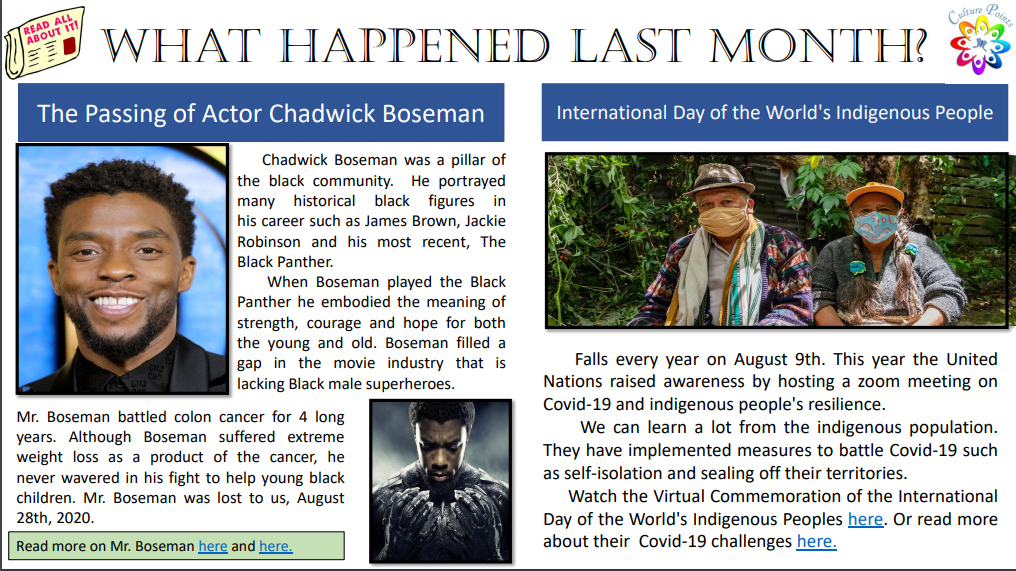Cultural diversity and its impact on mental health has become an increasingly important issue in a globalized world where the interactions between cultures continue to grow exponentially. Aware of such importance internally, Family & Children’s Services bridges its employees together through a monthly newsletter reflecting world events, historical facts and topical information.
Culture Points is the brainchild of Noemi Agagianian, who initiated the idea while working with F&CS’ Women in Recovery (WIR) clients a few years ago.
“When I began with Women in Recovery, we had a work plan for diversity and inclusion that we were just starting and working on,” she said. “At the time, one of the things we had done was conduct a book club. We talked about different issues and had good discussions going. I told my supervisor at the time I thought it would be cool to have a mini newsletter for everyone to kind of put some things out there that people might not be aware of and start some conversations. It would complement the book club discussions and trainings we were having. She was onboard with the idea.”
Noemi shared her vision with other WIR staff members, and eventually, began collaborating with another co-worker who was equally enthusiastic and excited about the newsletter The initial newsletters were produced through careful research and topical information that was relevant for staff members to use, and essentially, share with others. Subsequently, Culture Points drew the attention of other F&CS programs, and the newsletter circulation grew.
The agency’s Social Justice and Cultural Competence Committee immediately saw its value to the agency and began sharing content with supervisors of clinical staff.
“In June, the committee expanded the target audience to the whole agency,” said Angela Ademy, F&CS Director of Quality. It’s a great newsletter that has something for everyone — articles, recipes, poems, quotes from famous social justice advocates, calendars of local events, etc. Staff benefit by learning about other cultures. Supervisors are encouraged to share articles and have open conversations in staff meetings about social justice and cultural competence. The goals are to continue to develop a culturally competent workforce and to ensure that our clients receive services that are culturally competent.”
Currently, Noemi maintains the newsletter with the help of interns.
“With this new team of interns, it’s grown a lot more,” she said. “They’ve brought a lot of really great ideas and what sections should be added. Awareness is certainly key to change. We’ve done lunch and learns based on some of the topics featured in the newsletter. Our clients have benefited from the information.”
With the continuation of Cultural Points, fostering internal dialogue provides F&CS with several opportunities to work in unique and effective ways towards positive mental health.










